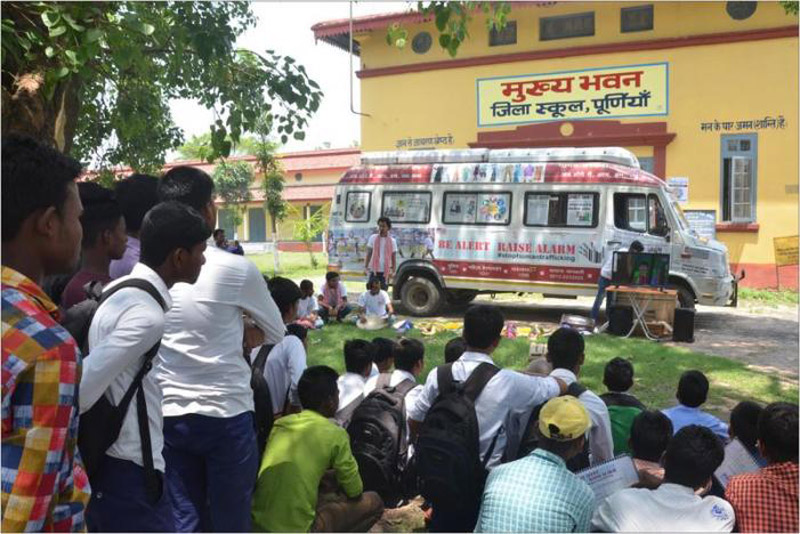India's 'anti-human trafficking caravan' tours villages and towns
NEW DELHI: You know when the "anti-human trafficking caravan" is in town. The loudspeakers blare as the large white bus moves slowly through eastern India's towns and villages and an animated voice calls on residents - young and old - to come and join the fun.
And the fun really is fun - ranging from music, dance performances and street plays to puppet shows, movies and exhibitions - but all have a serious message: "Be Alert, Raise Alarm. Stop human trafficking."
The caravan is the brainchild of the US Consulate in Kolkata and is a novel attempt to raise public awareness about trafficking and slavery in a country where such crimes are widespread, and on the rise.
With its sides emblazoned #StopHumanTrafficking, the caravan has just completed a one-month 5,800 km (3,600 mile) journey across West Bengal, Jharkhand and Bihar states - engaging with 50,000 people along the way.
"We used a variety of tools such as street plays, mobile exhibitions and were joined by puppeteers, dance troupes and musicians at various stops," said Ananya Bhattacharya from banglanatak.com, one of the charities involved in the campaign.
"We warned people about the dangers and also informed them of what protections and benefits are available such as compensation for rescued bonded labourers and helpline numbers for migrant workers."
Almost 20,000 women and children were victims of human trafficking in India in 2016, a rise of nearly 25 percent from the previous year, according to government data.
Thousands of people – largely poor and rural – are lured to India's towns and cities each year by traffickers who promise good jobs, but sell them into modern day slavery.
Many end up as maids, or are forced to work in small industries such as textile workshops or labour on farms. Others are even pushed into brothels.
In many cases, they are not paid or are held in debt bondage. Some go missing, and their families cannot trace them.
Activists say one of the biggest impediments to curbing human trafficking is the lack of understanding about the crime amongst communities, as well as among local police and officials.
The caravan, which started its journey in Kolkata on March 17, made 115 stops before ending in Bihar's capital Patna on April 30.
Street plays, songs and performances were used to highlight traffickers' modus operandi such as false promises of jobs, marriage and a better lifestyle.
Posters and pamphlets in local languages provided information about what people should do if they encounter traffickers or suspect someone is being trafficked.
Ravi Kant from Shakti Vahini, another charity behind the campaign, said they hoped to replicate the caravan in India's northeastern states.






